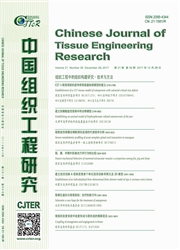

 中文摘要:
中文摘要:
背景:由于运动项目特点的差异及运动员个体代谢特征的差异,难以建立统一的生物学指标训练监控标准,其个体化评估目前仍停留在依靠经验、依据数值变化幅度的个体纵向分析及评定,缺乏更客观性个体化评估方法。目的:探讨血液生化、脑功能监测个体化机能评定与监控的评估方法,在优秀体操运动员训练过程中,精准反映训练负荷带来人体变化的方法。方法:以国家体操队备战伦敦奥运30名集训队员为研究对象,以伦敦奥运会前最后一个冬训至奥运赛前为监控周期,进行系统的血液生化、脑功能监测,依质量控制原理(警戒值=均值±标准差,控制值=均值±2标准差),对优秀体操运动员的血液生化和脑功能指标进行个体化评估。结果与结论:在保证测试条件相对统一的前提下,依质量控制原理对优秀体操运动员的血液生化和脑功能指标进行个体化评估是可行的,可以更精准、客观地反映出训练负荷所带来的人体变化及运动员的现实状态。且血液生化和脑功能指标联合监测评估,可以更全面地评价运动员的身体机能和状态。
 英文摘要:
英文摘要:
BACKGROUND: Due to the differences of sport events and individual metabolic characteristics of athletes, it is difficult to establish uniform biological indexes for training monitoring. Current individual evaluation is a longitudinal analysis relying on experience or numerical variation width, which is less objective.OBJECTIVE: To explore the individual function assessment and monitoring by monitoring blood biochemical indexes and brain function indexes in elite gymnasts, in order to accurately reflect the body changes resulting from training loads. METHODS: Thirty gymnasts from the Chinese national gymnastics team preparing for London Olympic Games were enrolled in this study and monitored from the last winter training until the London Olympic Games. The blood biochemical indicators and brain function indicators were measured and assessed individually according to according to the principle of quality control(alert value=mean±SD, and controlled variable=mean±2SD). RESULTS AND CONCLUSION: Under the relatively uniform test conditions, it is feasible to individually assess the blood biochemical and brain function indexes of elite gymnasts in accordance with the principle of quality control, which is more accurate and objective to reflect the body changes under training load and the current state of athletes. In addition, the combined monitoring of blood biochemical indexes and brain function indexes is more comprehensive to evaluate the body function and status of elite gymnasts.
 同期刊论文项目
同期刊论文项目
 同项目期刊论文
同项目期刊论文
 期刊信息
期刊信息
